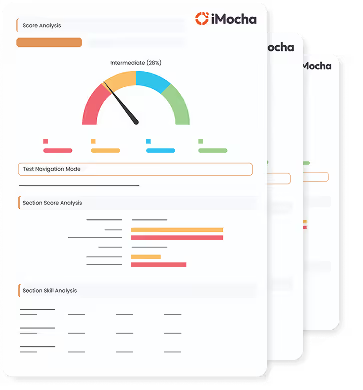


Choose easy, medium, or tricky questions from our skill libraries to assess candidates of different experience levels.
Choose easy, medium, or tricky questions from our skill libraries to assess candidates of different experience levels.

Choose easy, medium, or tricky questions from our skill libraries to assess candidates of different experience levels.

Choose easy, medium, or tricky questions from our skill libraries to assess candidates of different experience levels.
This a comprehensive PDF report, which you can instantly download and share with your hiring team or candidates for seamless collaboration.
Download Sample Report



The assessment includes an in-depth analysis of candidates' database normalization skills, such as maintaining data integrity, security, privacy, database recovery, etc. It enables recruiters to improve the interview-selection ratio by 70% and measure your learning programs' ROI.





%20(1).webp)
It is a data management procedure followed by data engineers, architects, and administrators to store and maintain an application's data efficiently. It involves structuring and organizing data in such a way that it maximizes data efficiency and minimizes data redundancy.
Why Choose iMocha?
This skill test assesses the candidates' and employees' ability to work on data, normal forms, models, techniques, and more. At the same time, L&D managers can leverage this test to identify employees' weaknesses and strengths to make intelligent talent decisions.

The skill assessment evaluates the following skills possessed by individuals:
The test analytics feature also allows you to compare candidate scores and make informed decisions about who to hire and where to put extra training efforts.







.webp)
.webp)
.webp)
.webp)


